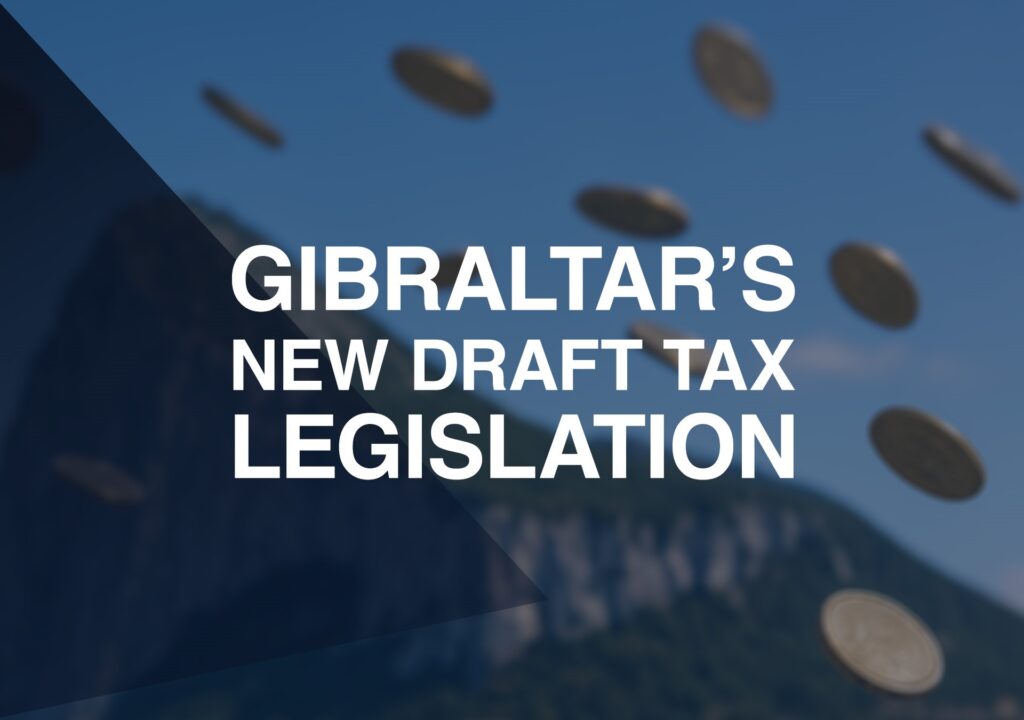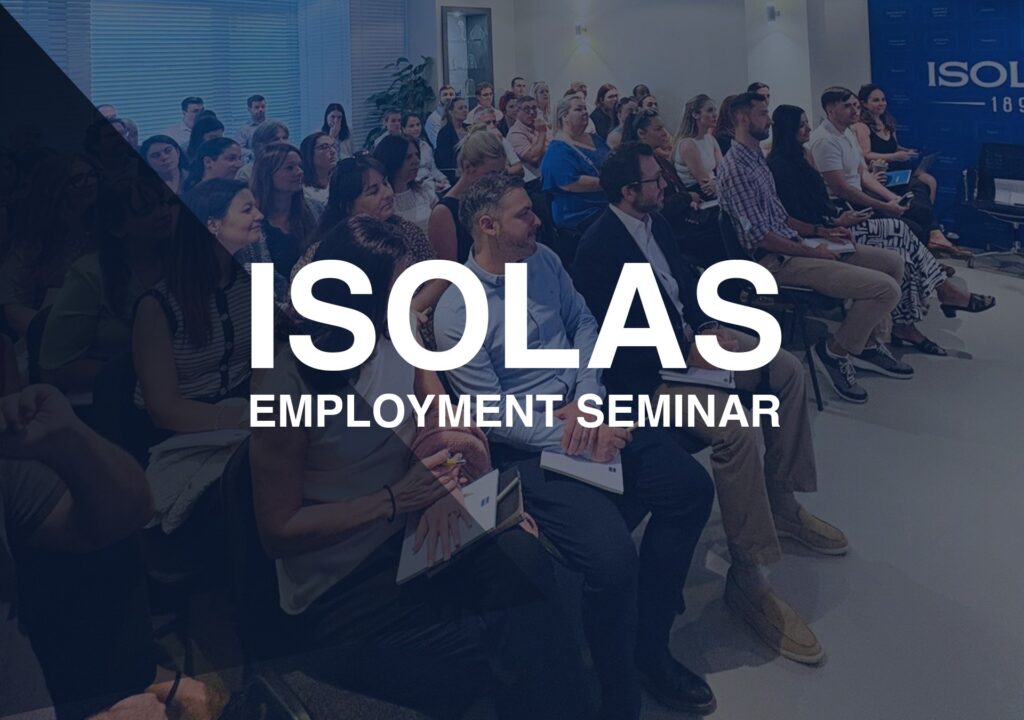Abstract
This briefing summarises the recent BEAT COVID measures announced by Her Majesty’s Government of Gibraltar (‘HMGoG’), which have now been legislated for under the Appropriation (Business Employee Assistance Terms COVID-19) Regulations 2020 (the ‘Regulations’). The legislation comes after guidelines issued on 25 March 2020.
The Chief Minister, acting in his capacity as the Minister with responsibility for finance and in the first exercise of the powers recently conferred on him by s.8(1) Appropriation Act 2019 has been able to make the Regulations after having consulted with the Leader of the Opposition. They follow recently enacted legislation and other parallel regulations made in response to the global pandemic brought about by Coronavirus (‘COVID-19’ or ‘SARS-CoV-2’), designed to protect the elderly population and the general public through a set of lockdown measures.
The relevant “Minister” referred to in the Regulations is the Minister with responsibility for finance (currently the Chief Minister).
The Regulations remain in force until 30 June 2020, unless an earlier Gazette notice announces that the COVID-19 pandemic is over.
Who is entitled?
- The measures cover “Inactive Employees” working for eligible employers (i.e. those not from an Excluded Sector) who cannot work remotely and are not provided with any work by their employer and who are told not to attend their place of work due to the current lockdown restrictions.
- Inactive Employees can either be “full-time” or “part-time”, depending on whether they were registered as such with the Income Tax Office or Department of Employment as at 15 March 2020. Those registered thereafter are ineligible for the BEAT COVID Measures.
- Employees must have been employed for a period of at least 28 days in the period 15 September 2019 to 15 March 2020. The same conditions apply to those that are self-employed.
- Employers who reasonably know that another employer has made or will make an application on behalf of the same employee should not include those employees in an application (i.e. no double-dips).
- Full-time Inactive Employees whose annual income was either declared by them or deemed by Government to be less than £15,000 are treated as part-time Inactive Employees.
- The measures also cover and “Inactive Self-Employed Persons” provided they were registered as such with the Income Tax Office or Department of Employment as at 15 March 2020.
Who is not entitled?
- Businesses and self-employed persons in an Excluded Sector will not be eligible for the measures. All other sectors are considered a “Relevant Sector”.
- Detached workers are ineligible for the measures as are those on sick leave.
- Any Inactive Employees receiving non-employment recurring annual income above £15,000 are also ineligible.
- If an Inactive Employee returns to work then he/she is no longer Inactive.
- Excluded Sectors are listed in Schedule 2 of the Regulations and at the time of writing include those listed below:
- Utility providers;
- Telecommunications operators and internet service providers;
- Data centre providers;
- Care workers;
- Supermarkets;
- Grocers;
- Butchers;
- Market Stalls;
- Wholesalers with a tobacco licence;
- Petrol stations;
- Food delivery companies;
- Online gaming industry and casinos;
- Accountancy firms;
- Law firms;
- Businesses that are licensed by the FSC (including insurance businesses and intermediaries);
- Pharmacies;
- Health stores;
- Bunkering, ship chandlers, sea transport and other shipping businesses;
- Property management companies;
- Businesses that are predominantly reliant on Government as their main source of income; and
- Any other business deemed to be in substantive operation
In exceptional circumstances, persons in the Excluded Sector can apply to HMGoG to be considered as part of the Relevant Sector.
How to apply
- Applications are made online, but employers may be required to sign a hard copy of the application submitted. Applicants can apply as employers or as self-employed persons. Those in employment should not apply on behalf their employer.
How payments will be calculated and made
- Employers from the Relevant Sector who submit complete applications on behalf of their Inactive Employees will receive a “BEAT COVID-19 Contribution” by direct bank transfer before the end of April provided they apply before 21 April 2020. They must give each Inactive Employee their attributable share no later than 3 working days from receipt of the contribution and hold it on trust until they do so. Evidence of a “BEAT COVID-19 Payment” should be retained by the Employer, together with additional information about the application.
- If an Inactive Employee continues to receive part of their salary from their employer, then they are still entitled to a BEAT Payment so long as the employer payment does not exceed their full salary.
- Inactive Self-Employed Persons will receive a “Self-Employed BEAT COVID-19 Payment” by direct bank transfer on similar terms if they apply in good time and are continuing to fulfil conditions of being inactive and having no other sources of income such as a full salary from employment or other recurring income (i.e. not their ordinary self-employed income) in excess of £15,000 per year.
- Schedule 1 provides for the calculations of payments. At the time of writing, the BEAT COVID-19 Contribution for each full-time Inactive Employee for any calendar month is £1,155 (or such lesser sum as HMGoG may determine given the information submitted in the application and historical information available to the Income Tax Office), calculated by multiplying 7.5 hours in a day by 22 working days by the current ‘BEAT COVID-19 Hourly Rate’ of £7.00 per hour.
- For part-time Inactive Employees, the Contribution payable is calculated by considering the average of the normal working hours worked by the relevant part-time Inactive Employee from 2 January 2020 to 15 March 2020 (the ‘Average Hours Per Day’) and then multiplying that by 22 working days by the BEAT COVID-19 Hourly Rate (or such lesser sum as HMGoG may determine given the information submitted in the application and historical information available to the Income Tax Office). To obtain the Average Hours Per Day the total number of hours worked during 2 January 2020 to 15 March 2020 is considered. Provided it is no more than 390 hours, then the hours worked during the period are divided by 390 and multiplied by 7.5 to obtain the Average Hours Per Day.
- For Inactive Self-Employed Persons, the Contribution payable is also £1,155 and calculated in the same manner as for full-time Inactive Employees at the time of writing. This figure is also subject to review by Gazette notice. Inactive Self-Employed Persons may submit more than one application in the same month, but their previous application is deemed to be amended by the latter. Only one payment is allowed per calendar month in any event.
Restrictions on employers
- No bonuses or dividends to shareholders are allowed to be paid by Relevant Sector businesses who receive a BEAT COVID-19 Contribution whilst the Regulations are in force.
- Any termination of employment between 15 March and the time the Regulations are in force shall be void unless consent of the Director of Employment is obtained in writing, on receipt of proof of reasonable cause.
Obligations and rights of eligible persons
- The Inactive Employee retains all employment rights and obligations except the rights to be paid a salary and accrual of holiday and leave entitlement, which may need to be suspended during this period.
- In exchange for payment, any Inactive Employee or Inactive Self-Employed Persons may be required by Government to provide services to Government during this period.
- Tax shall not be chargeable in Gibraltar on any BEAT COVID-19 payments made to an Inactive Employee or Inactive Self-Employed Person.
- No social insurance shall be payable in Gibraltar by an Inactive Employee, their employer or an Inactive Self-Employed Persons for as long as the Inactive Employee or Inactive Self-Employed Person remains inactive. However, an Inactive Employee and an Inactive Self-Employed Person shall be deemed to have made all their respective social insurance contributions for such part that they remain inactivate.
- Any BEAT COVID-19 payments made by an employer to an Inactive Employee shall not be included in that Inactive Employee’s employer annual statement to the Income Tax Office (P8 Form).
- Whilst it is currently uncertain how an Inactive Employee or an Inactive Self-Employed Person should declare any BEAT COVID-19 payments (if at all) on their tax returns, we would expect further clarity on this by HMGoG in the coming months.
Offences, anti-abuse provisions and issues with payments
- Criminal offences are included to dissuade non-compliance or any abuse that is intentional or reckless, including providing false, inaccurate or misleading information. The offence is an either-way offence, which means it can be tried summarily in the Magistrates’ Court or on indictment in the Supreme Court, with potential imprisonment for up to 7 years and an unlimited fine in the latter court. A corporate offence is also included where a benefit is received by a corporate body which it would otherwise not be entitled to under the Regulations.
- Additionally, a civil offence has been included which could lead to having to pay Government back up to three times the amount of BEAT COVID-19 Contributions received or applied for during this period, plus paying back the contribution(s) as a civil debt.
- Anti-abuse provisions are provided for by way of notification obligations on both employers and Inactive Employees for issues including, but not limited to, overpayments, returning to work, receipts of non-employment recurring income, or having more than one employer. Further exclusions are provided for any Inactive Employees that continue to provide any services to their employer.
- Any employer who has attempted where possible but cannot make a payment to one or more Inactive Employees must return the Contribution to Government within 14 days of receipt and inform the Inactive Employee of the reasons for not being able to make the payment.
- The burden for erroneous payments lies with the employer who needs to repay this to Government unless they have reasonable cause, and also need to report erroneous payments received.
Other considerations
- The current lockdown measures under the Civil Contingencies Act 2007 do not apply to employers’ access to the workplace in order to access information and submit applications, as well as carry out essential payroll/BEAT COVID-19 Payment tasks and deal with outstanding invoices.
- Insolvency proceedings, voluntary winding up and schemes of arrangement commenced by or against employers are also regulated so that relevant priority is given to unpaid payments and civil debts created under the Regulations as preferential debts.
- Data sharing provisions are included to ensure Government can freely share BEAT COVID application data collected or generated with relevant tax, social insurance and other appropriate authorities within Gibraltar or in the country of residence of each Inactive Employee or Inactive Self-Employed Person in respect of whom an application is made. Consent is deemed as a lawful basis for this sharing of information and consent is deemed obtained upon receipt of payment. In addition, Government may demand banking institutions or tax authorities to confirm whether such persons are in receipt of other non-employment recurring annual income in excess of £15,000.
- A BEAT-COVID-19 Appeals Board has been established to hear and determine appeals under the Regulations, which includes the Financial Secretary as its chairman as well as government officers. Appeals may be made on the basis of:
- Refusal of all or part of a BEAT-COVID Contribution
- Failures by employers of Inactive Employees to make a valid application or to make a BEAT COVID-19 payment.
- Any employer, Inactive Employee or Inactive Self-Employed Person being dissatisfied with the calculation or any relevant contribution or payment.
A further opportunity to appeal to the Magistrates’ Court is also provided for in the event the appellant is dissatisfied with a determination by the Board.
- A “name and shame” provision has been included within the Regulations to allow persons who fail to comply with them to be named in the Gazette, and have further details published about them such as the business address and any other information as the Director of Employment considers appropriate to publish in order make clear that person’s identity. To prevent errors and potential defamation actions by those named, the Director of Employment can publish retractions as necessary.
Here to help
If you are an employer, employee or a self-employed person who has been affected by the lockdown measures and consider you may be eligible for the BEAT COVID scheme, ISOLAS is on hand to assist with applications, appeals or any general queries you may have.
Please contact Samantha Grimes on samantha.grimes@isolas.gi or Stuart Dalmedo on stuart.dalmedo@isolas.gi or Michael Adamberry on michael.adamberry@isolas.gi
To download the PDF version, please, click here.





